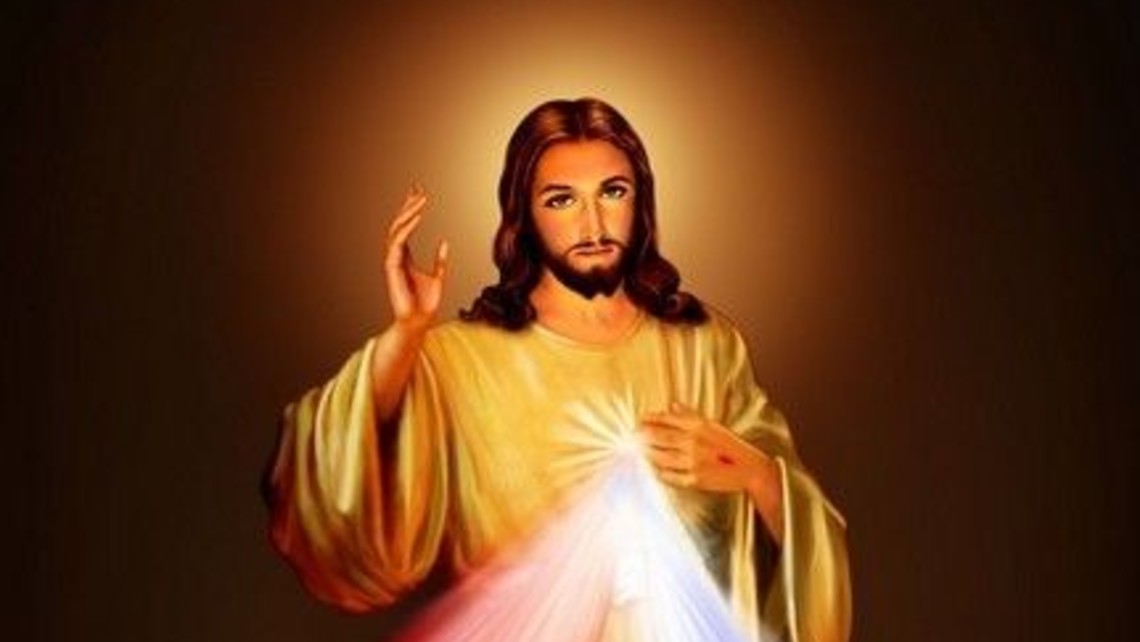
Let’s continue our theme on Mercy as we come to the end of the Triduum and enter into the culmination of Mercy’s ineffable gift. It is fitting that the Mercy Novena begins on the day we call Good—Good Friday. The Cross is our example of what is demanded of us if we are to be able to receive God’s merciful love. That is, to join with Selfless Giving Love, we must conform ourselves to our total Self-giving God through our habitual acts of loving obedience, to total self-gift.
Good Friday is the act Jesus performed for all of humanity making effective our acts of total self-gift. We are saved because the Cross is the love Jesus, in His mercy, performed for us, and now continues to perform with us. This is the message St. John Paul II wanted to give to the Church when he re-stoked the Church Militant’s zeal for Divine Mercy.
St. John Paul II is known for many notable achievements. Future generations may well look back and highlight as his most notable achievement, his refocusing the faithful to the centrality of the Gospel message of God’s mercy. As we have said before, it appears that a resurgent emphasis on the message of God’s mercy has paralleled the Church’s call for a new evangelization. This parallel reflects the Magisterium’s docility to the Holy Spirit.
St. John Paul II, in his encyclical, Dives in misercordia (DM), tells us that mercy is love’s second name (DM, 7). This entire encyclical emphasizes the central message of the “Father of Mercies,” who is revealed in His Incarnate Son, offering to man His ineffable, gracious gift of mercy. To this end, SJPII promoted the message of mercy with the canonization of St. Faustina and the devotion to the Divine Mercy given through her. Moreover, he introduced Divine Mercy Sunday into the liturgical calendar giving the universal Church the opportunity to pray as one, the novena to Divine Mercy.
Pope Francis has taken up this emphasis on Mercy. He has said that he believes that now is a time of mercy, that perhaps the promotion of the message of mercy was the reason for his pontificate. For Francis, “mercy changes everything.” To emphasize the importance of mercy for the new evangelization, he has called a Jubilee Year of Mercy to begin in December of 2015.
But John Paul II also warned that contemporary man, with all of his abilities to master the world around him, has come to see the offer of mercy has beneath him. The need for mercy no longer seems intelligible for one who, so encrusted in the illusion of self-sufficiency, considers salvation (if he accepts the notion) his due.
Illusory self-sufficiency, prideful autonomy, is perhaps the greatest obstacle to evangelization with Jesus’ message of mercy. One of the greatest challenges facing the new evangelization is to discern and to perfect effective methods of promoting the message of mercy to societies which have forgotten sin, of proclaiming this good news to people who are inured to their spiritual misery, abetted by the many distractions of their material comforts and soul anesthetizing, omnipresent media.
To such a society, the message of mercy will be ignored as irrelevant at best. At worst, it will be taken as a humiliating affront to sensibilities habituated to a presumptive right to everything desirable. The many thus affected will not be able to receive Divine Mercy because Mercy can come only to those who will deny themselves and take up their crosses of self-mastery, of dying-to-self in order to follow Him. Mercy is the answer; we still need to find effective ways to help people see the question of our need for it before our current societal trajectory reaches its endgame. By then, the question of the need will be unmistakably apparent.
MAI will continue to study the message of mercy in order to develop new means and methods of expressing it effectively.




